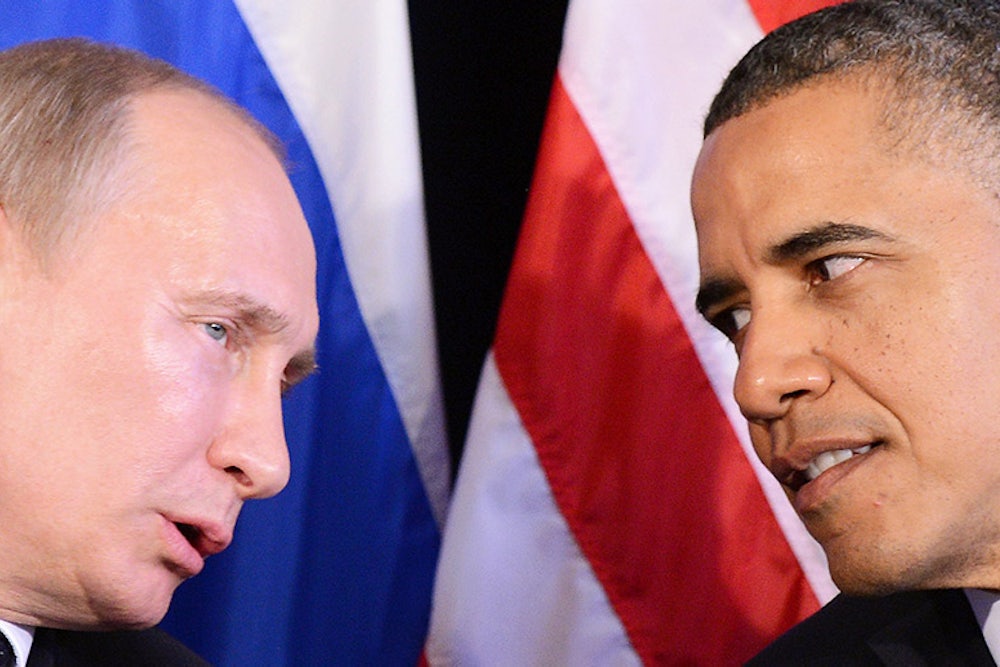Putin may be a “Russian ayatollah”: delusional, messianic, narcissistic, moralistic, brutal, or all of the above. What he’s not is the cool, rational intellectual that defines Barack Obama. And that makes for a mutually difficult relationship which is playing out in Ukraine, Syria, Iran, missile defense, and trade challenges.
Changing either man is highly unlikely. But changing Russian policy is doable if the US is careful and adroit. We need to accept some realities and work around them:
1. We cannot deal with issues in isolation. What we do or don’t do in Kosovo, Georgia, Syria, or Iran shapes Russia’s impression of us—and that affects Russia’s calculus in Ukraine. Conversely, how we deal with Russia in Ukraine affects our options with Russia elsewhere.
2. Russia’s participation in the G8 has always been more of a courtesy than a requirement. Putin just spent $51 billion showcasing Sochi as a modern venue of the new 21st century Russia. Denying him the G8 in June will hurt him far more than it will hurt the remaining G7—and could be a forcing mechanism to get him to reconsider some of his recent rash actions.
3. Ukraine is a real country with strong ties to the West—no longer a Soviet puppet state. Putin underestimates the wound caused by the murders in the Maidan—and the discomfort of many in Crimea, certainly including the Muslim Tartar population. Ukraine is also an economic basket case and wants competent, inclusive, and transparent government far more than foreign soldiers. The EU and US need to provide resources and help to build political capacity.
4. Forget pivots. The whole world needs American leadership and we can’t pick and choose regions. Building coalitions is always preferable—especially when NATO, the OSCE, and EU have more to lose than we do.
5. Always worry about miscalculation. A century ago, World War I began with a miscalculation. Could another one lead to World War III? Let’s hope not.
Jane Harman is director of the Woodrow Wilson Center and a former congresswoman from California.
Stay informed with The New Republic's Ukraine Newsletter. Sign-up here.
